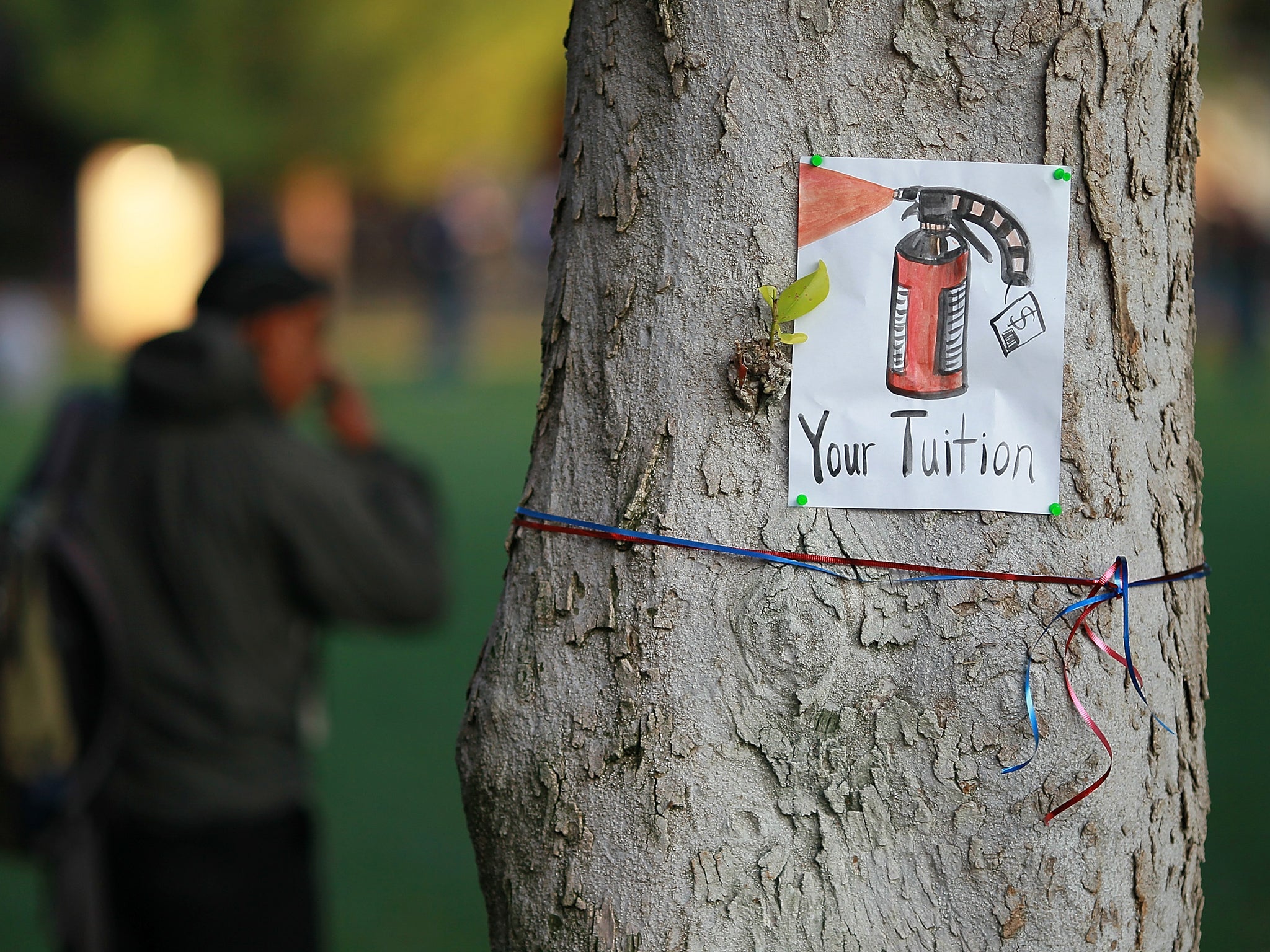California university paid thousands to erase negative pepper-spray results from Internet searches
A campus police officer sprayed a group of peaceful protestors during an Occupy demonstration in 2011

Your support helps us to tell the story
From reproductive rights to climate change to Big Tech, The Independent is on the ground when the story is developing. Whether it's investigating the financials of Elon Musk's pro-Trump PAC or producing our latest documentary, 'The A Word', which shines a light on the American women fighting for reproductive rights, we know how important it is to parse out the facts from the messaging.
At such a critical moment in US history, we need reporters on the ground. Your donation allows us to keep sending journalists to speak to both sides of the story.
The Independent is trusted by Americans across the entire political spectrum. And unlike many other quality news outlets, we choose not to lock Americans out of our reporting and analysis with paywalls. We believe quality journalism should be available to everyone, paid for by those who can afford it.
Your support makes all the difference.Officials at the University of California, Davis, reportedly paid thousands of dollars to improve the school’s image on the internet in the years since a campus police officer pepper-sprayed a group of student protesters.
In documents obtained by the Sacramento Bee, UC Davis held a contract for at least $175,000 to scrub the internet of negative comments on the internet regarding the 2011 incident. One firm contracted by the university, Nevins & Associates, referred to some search results as “venomous rhetoric about UC Davis and the Chancellor [Linda P.B. Katehi].”
During a November 2011 Occupy protest, 200 students banded together to support the national movement against income inequality in the US.
Thirty-five riot gear-clad campus police officers arrived to break apart and disperse the peaceful demonstration. A number of students linked arms and sat on the ground with their heads bowed down in an act of civil disobedience. Video clearly showed one campus police Lt John Pike doused the row of students in a toxic orange spray at point-blank range.
To repair its negative image, UC Davis signed a six-month contract with Nevins in 2013 for $15,000 per month up to $99,000. In the agreement, the firm was to “[a]dvise and support UC Davis' adoption of Google platforms to expedite the eradication of references to the pepper spray incident in search results on Google for the university or the Chancellor.”
The agreement with Nevins would “dilute” negative search results with a “surge of content with positive sentiment and off-topic subject matter through the strategic use of search tags, titles, and descriptions,” according to the 2013 proposal.
In a different 2014 contract, it was digital strategy firm IDMLOCO’s job “achieve a reasonable balance of positive natural search results” of terms often used to search for UC Davis and Ms Katehi. The university paid the firm $82,500. UC Davis contracted IDM two more times in 2015 — first in February to implement a social media strategy, and again in September to evaluate the redesign of the university’s Strategic Communications.
“We have worked to ensure that the reputation of the university, which the chancellor leads, is fairly portrayed,” UC Davis spokesperson Dana Topousis told the Bee. “We wanted to promote and advance the important teaching, research, and public service done by our students, faculty, and staff, which is the core mission of our university.”
One state lawmaker called into question the priorities of the Chancellor and the university.
“It is troubling that the administration chose to spend scarce public dollars and to nearly double its PR budget when tuition soared, course offerings were slashed, and California resident students were being shut out,” said state Assemblyman Kevin McCarty, chair of the Assembly Budget Subcommittee on Education Finance. “These findings just raise more questions about university priorities.”
Mr McCarty is one of four Assembly members who have called for Ms Katehi’s resignation following her acceptance of a paid board seat for the US for-profit school, DeVry Education Group in March. Critics of the Chancellor saw the board position as a conflict of interest with the university.
Students have reportedly staged a sit-in in the Chancellor’s office since 11 March calling for her to step down.
Join our commenting forum
Join thought-provoking conversations, follow other Independent readers and see their replies
Comments